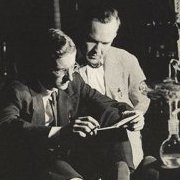-
Posts
4586 -
Joined
-
Last visited
-
Days Won
12
Content Type
Profiles
Forums
Events
Everything posted by hypervalent_iodine
-

Help with neuroscience
hypervalent_iodine replied to spark's topic in Anatomy, Physiology and Neuroscience
Have you read the paper yourself? It might be more constructive to begin with what you specifically don't understand. For instance, are you familiar with what a meta-analysis is? -
! Moderator Note MattMVS7, This is a discussion forum, not your blog. No one wants to read through a wall of text like that, especially one so preachy as yours. If you have genuine questions or points you'd like to discuss, I would ask that you open a new thread (and be concise). In the meantime, this is closed.
-
I doubt that all of the permethrin will have degraded. Reading up on it briefly, the cis isomer remains relatively stable in soils over the course of a few months. Further, I wouldn't imagine that the hydrolysis products would appear at the same retention time as the peak for in-tact permethrin. It should be fairly easy to discern the two. I'm a little confused by your statement on it being permethrin free. If you're testing the end product of the crop and you are finding permethrin or even the break down products of permethrin, then clearly it was used as a pesticide and should not be considered "organic" for the purposes of labelling. Whether or not it's broken down by the time you get to it is rather besides the point.
-
It would probably help you to write the reaction out to work out the ratio of Pb used to PbBr2 produced. In this case, the reaction is simply: Pb + Br2 --> PbBr2 The coefficients out the front of each component is where we get what are called the stoicheometric ratios from. In this reaction, one molecule of Pb is required to make one molecule of PbBr2. So, if you know that you have made 0.0117 moles of PbBr2, then you must have used 0.0117 moles of lead (assuming 100% conversion).
-
This seems about right. Easiest way to check these assignments is with SDBS. For known organics, anyway. http://sdbs.db.aist.go.jp/sdbs/cgi-bin/direct_frame_top.cgi If you search by CAS number (110-19-0), you can view the recorded spectra for isobutyl acetate. The important thing to match is the fingerprint region below 1500 cm^-1. It looks pretty similar to me.
-
I think that should work, yes.
-
Potentially too much. I would halve it and make sure you add more a few times a week. Does the liquid in the vat get a good amount of sunlight?
-
With some difficulty depending on how good your pump is, yes.
-
What is your product and how long were you planning on leaving it?
-

Niacin - Specific metabolic pathway
hypervalent_iodine replied to Becki182's topic in Biochemistry and Molecular Biology
Whether or not its a good pathway would depend on how you tie it into your essay. I am not familiar with the pathway you have shown, but given that humans can't make B12, it might be interesting to find the part of the biosynthetic pathway that we lack compared to organisms that can make it. As for making the body of text more exciting: not really and yes. Writing about synthetic schemes can often sound like you are just reciting a list. There's not really a way around having to do that, but you can make it a little more interesting to your reader by highlighting the theoretical concepts that come into play (and by keeping the boring bits concise). For example, when writing about synthesis in organic chemistry, I will usually list examples of a particular synthesis, briefly going through what was made into what and how well it was done. This can make for very boring reading (and writing) on its own. The way around it (for me at least) is to try and break it down into mechanistic detail and comparisons to other systems in a way that helps you tell whatever story you're telling. I couldn't give specific details for the area this essay is in, but that last bit is probably the most important. You don't want to be rambling on and on about bare facts; it needs to all weave together into something coherent. -

Help with lab project [Effect of low pH on Enzyme Activity]
hypervalent_iodine replied to normy's topic in Homework Help
Firstly, bleach won't give you a low pH. It's basic. Some also contain peroxides. Could you give a little more context about what you're doing? Why are you adding household chemicals instead of dilute HCl? Surely this will complicate the number of variables you are changing? How are you determining enzyme activity? Are you using purified enzyme or yeast cells? What are your controls? -

Helium Solubility in Dilute Water
hypervalent_iodine replied to Jacobwshasta's topic in Inorganic Chemistry
The solubility of helium is incredibly low. At those levels I doubt it would do anything, which begs the question: what are you hoping to achieve? Also, not sure what exactly is meant by dilute fresh water? What are you diluting? -

Your take/ experience with millenials...
hypervalent_iodine replied to Elite Engineer's topic in The Lounge
Are they actually worse or is it just that it's more visible by virtue of the space in which they get to express themselves? My youngest sister, 15 years my junior and a currently a pre-teen, probably fits most of the points listed in the OP, but I think most people would be the same given access to the same platforms at her age. I thought this too, but it turns out I'm just as much a millennial as my kid sister. The horror. -

Stoichiometry, finding mass of product
hypervalent_iodine replied to purplemonkey123's topic in Homework Help
No, you always use the limiting reagent. By definition, it is the component that limits the amount of product formed. Using your molar masses and mass amounts, I get the same answer.- 1 reply
-
1
-
Worded another way, Sensei's post might read, "what is the process for producing vodka called?"
-
Add Soldier1 to that list.
-
In an exciting turn of events, MWresearch has been banned permanently.
-

Phenol-sulphuric acid assay for cellulose
hypervalent_iodine replied to artery's topic in Organic Chemistry
Could you be more specific about the nature of your sample? How you would do that may vary with the matrix the cellulose is in. I am not familiar with the assay that you have mentioned, but having read briefly up on it (there are plenty of papers on it if you look it up on Google), I can say that it is compatible with polysaccharides and so it should work with cellulose. Edit: You could read this http://link.springer.com/chapter/10.1007%2F978-1-4419-1463-7_6 -
vinucube has been suspended for 6 months for repeatedly reintroducing closed topics and because they aren't around enough for a week's suspension to have any effect whatsoever.
-
I fail to see how the symptoms you have listed might have anything to do with your sexuality, or why you would think that they were. What exactly do you hope to find with the information you are seeking (in other words, what sort of literature precedence is there for what you are saying)? How will you know the SNP's they find are in any way important? Do you have any evidence to support what you are thinking / saying at all? Most importantly, have you considered going to a doctor instead of wasting $750 on something that in all likelihood, isn't going to tell you anything useful?
-
Arete's questions about bioinformatics is an important one. If you're paying $700 for a bunch of unassembled contigs and you don't know how to process all the data or you don't have a set up capable of handling it, you've wasted your money. It's not an especially simple process to put your data together and how you do it depends somewhat on the question you are hoping to have answered.

